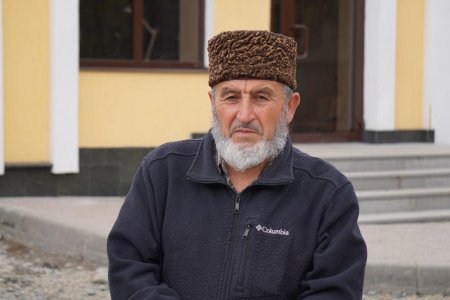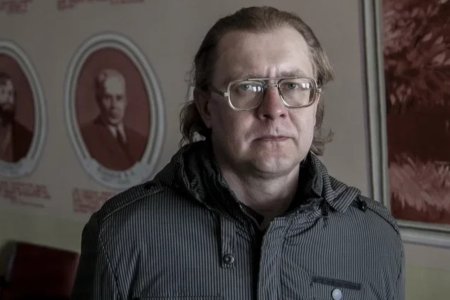
The ruling, passed by ‘judge’ N.F. Zharko of the Kirov court in Omsk on 7 May 2025, was only noticed and reported by Verstka on 30 May. It is, therefore, unclear, whether it was appealed within the 15-day period allowed. It seems more likely that those making such warranted comparisons or sharing the memes will find out that these are ‘prohibited’ when targeted by the police or FSB. The ruling constantly talks of the material being banned “on the territory of the Russian Federation”, however any such ban will certainly be applied on Ukrainian territory currently under Russian occupation.
The addresses given below demonstrate the types of images in question and make it clear that, in most cases, they were linked with protest over Russia’s full-scale invasion of Ukraine in 2022. Although the identification of Putin with Hitler dates back to 2014, and Russia’s invasion of Crimea (and, effectively, Donbas), all such memes became much more common from 24 February 2022. The analogy was, after all, difficult to avoid when both Putin and Hitler had invaded and occupied Ukrainian territory, terrorizing and killing civilians. Putin even repeated Hitler’s visit to occupied Mariupol, albeit doing so at night, with carefully staged ‘meetings’ with local residents.

The application was lodged by the Kirov district prosecutor “acting in the interests of an indefinite circle of people and the Russian Federation”. It had discovered, it said, “12 resources containing Nazi symbols, as well as captions and images discrediting the President of the Russian Federation”. These were, as yet, not on Russia’s already huge register of based sites, and anybody, oh horror, could access the sites. This could therefore, it was asserted, “have an adverse effect on the interests of society and the state; encourage an indefinite circle of people to carry out terrorist activities; crimes, and help in committing them which could, in turn, lead to a violation of human rights and civil liberties, including of minors, as well as the security of the state”
No attempt was made to explain how presenting Putin as ‘Putler’, with Hitler’s moustache, etc. could do anything of the kind. The same is true of the page on the Poems.ru site which shows Putin holding a gun to his head with the caption ‘”How to save the country from disgrace?” The mention of Nazi symbols is deliberately misleading as the entire context of all the images, including those in which Putin is merged into one with Hitler, is based on rejection of Nazism and condemnation of the Putin regime for repeating its crimes.
The application was, however, allowed in full, with all 12 sites – and, presumably – any others with such images, now banned in Russia and occupied Ukrainian territory.
Worth noting that, at least in occupied Crimea, the lack of any official ban would not stop the FSB or ‘anti-extremism centre’ from laying, at least, administrative charges against a person. The favourite charge has been one of the four rushed into legislation after Russia’s full-scale invasion of Ukraine, namely ‘discrediting the Russian armed forces, etc”, under Article 20.1 § 3 of Russia’s administrative code. This has been used against Crimeans for playing Ukraine’s national anthem or patriotic songs, for flying the Ukrainian flag, etc. Prison sentences have also been imposed under Article 280 § 2 of Russia’s criminal code for criticism of Russia’s war against Ukraine. This was claimed, as excuse for sentencing Valeriy Shevchuk to five years, to ‘incite people to extremist activities”. The FSB has also used the politically motivated ‘law on the rehabilitation of Nazism’ to bring criminal charges against people for words or images that were evidently against Nazism.
When pushed for an excuse, the FSB or ‘centre for countering extremism’ will claim that something ‘incites enmity towards Russians’. Rafis Kashapov was sentenced to three years in Russia back in 2015 over four Internet images, including one juxtaposing Putin and Hitler and their eerily similar claims about Crimea and Danzig (today’s Gdańsk). This was deemed to be ‘inciting hatred or enmity’ (Article 282 § 1 of Russia’s criminal code, and “public calls to actions aimed at violation of the Russian Federation’s territorial integrity” via the Internet (Article 280.1 § 2). The latter charge has been used on several occasions, especially against Crimean Tatars or other Ukrainians for stating, quite correctly, that Crimea is part of Ukraine.
In short, it has long been dangerous to be caught with a banner likening Putin to Hitler or equating Russian and Nazi German invasions, and Russia has developed a powerful arsenal of weapons against those peacefully opposing its war against Ukraine. This new ruling has formalized another pretext for repression, as well as for blocking access to totally innocuous Internet sites.
The web pages now banned:
https://immunocap.ru/photo/tom-mashet-rukoy/55;
https://news-geeks.ru/putler-kaput.html;
https://stihi.ru/2018/08/10/4023 ;
https://kaput-eto.rukamisami.ru/ ;
https://imgur.com/gallery/on-mind-myFT5oH ;
https:// satirrikon. livejournal. com/1302201.html ;
https://www.brighteon.com/8fe76fce-43b6-493c-a7c0-lf43b6d7305c ;
https://rozkminki.pl/co-warto-zobaczyc-w-rosji-fuck-putin/ ;
https://pr0gramm.com/user/Monsjo/uploads/1093111 ;
https://fishki.net/anti/3042075-moskva-i-moskvichi.html/comment-35258464 ;
https://9gag.com/gag/avQW8QZ ;
https://cont.ws/@betonturbin/2460352



